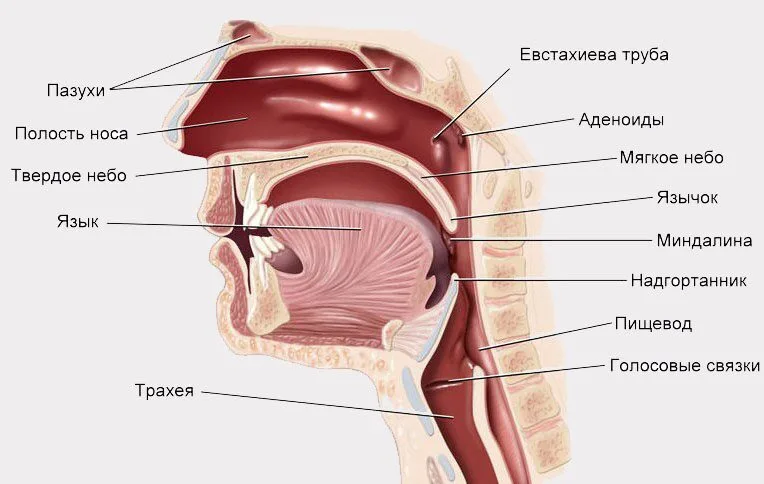A common way to improve or restore your voice after illness is to drink raw eggs. We checked whether the effectiveness of this method is supported by scientific evidence.
The claim that drinking raw eggs can improve your voice or ease the functioning of your vocal cords occurs both in professional circle of vocalists, and among general public. A drink made from raw eggs - eggnog - is mentioned on websites clinics and Media (at the same time, the risk of contracting salmonellosis is noted, but the effectiveness of the drink for hoarseness is emphasized). You can also read about this practice in fiction and memoirs. Singer Fyodor Chaliapin told, how he tried (unsuccessfully) to cure hoarseness with raw eggs and ended up, on the advice of a colleague, drinking eggnog, which contained not only eggs, but also a significant amount of cognac. Chaliapin was pleased with his voice that evening, but largely because by that time he was pretty drunk. This episode formed the basis of Alexander Kuprin’s story “Gogol-mogol" Another singer, Charles Aznavour, also treated the miraculous properties of eggs with irony. On the air of the “Evening Urgant” program he told: When his father saw Charles drinking raw eggs, he sarcastically remarked: "If it's good for the voice, then the butts of chickens should sing opera."
Before discussing voice restoration in one way or another, it is necessary to understand anatomical the structure of the human vocal apparatus and the structures surrounding it. The pharynx is a funnel-shaped muscular channel 12–15 cm long, which connects the nasal and oral cavities with the larynx and esophagus. Pharynx shares into three sections: the nasopharynx (the upper part behind the nasal cavity), the oropharynx (behind the oral cavity) and the hypopharynx (the lower part that goes into the larynx). Larynx located in the front of the neck, at the level of the third to sixth cervical vertebrae, and serves as a transition from the pharynx to the trachea and esophagus. The basis of the larynx is made up of cartilages: thyroid, cricoid, epiglottis and paired arytenoids. The epiglottis is a cap-shaped elastic cartilage that covers the entrance to the larynx during swallowing, preventing food from entering the airways. The vocal folds are located inside the larynx, stretched across the lumen and, when vibrating, create sound. They are located below the epiglottis, and the esophagus is located directly behind the larynx.

Although in everyday life the vocal folds are usually called vocal cords, this is an outdated name, so later in the text the modern name will be used. anatomical terminology.
The most common diseases of the vocal folds include nodules, polyps, cysts and granulomas, which most often occur due to excessive vocal strain or injury. In these cases, the vocal folds may swell and develop growths on them, which worsens vibration and leads to hoarseness and fatigue in the voice. Treatment usually includes voice therapy to reduce strain on the voice, surgical removal of the lesions, or laser treatment. For vocal fold paralysis use injections of fat or collagen, and surgery to restore closure function. “Verified” has not found any data in any scientific source on how raw eggs affect the condition of the vocal folds or voice.
This is not surprising. If we return to the anatomy, it becomes clear that neither ingested raw eggs nor any other food or liquid comes into contact with the vocal folds. Food bolus is being formed in the oral cavity, where it is chewed and moistened with saliva, then the tongue moves into the oropharynx and further into the laryngopharynx. When a person swallows, the epiglottis tilts back, blocking the entrance to the larynx. The vocal folds (which are located inside it) close, tightly closing the glottis and providing an additional barrier to prevent food from entering the airways. Consequently, any swallowed food or liquid gets in the way of the epiglottis, which covers the larynx, and then closed folds for additional protection. Instead, the bolus of food is directed into the esophagus, which is located just behind the larynx, and then into the stomach. Thanks to this coordinated mechanism, food does not touch the vocal folds. If it does accidentally get into the larynx, the person will feel coughing, choking, pain and discomfort in the throat - these are the body’s protective reactions to cleanse the respiratory tract. In such cases, it is important to stimulate the cough, and when holding your breath, use Heimlich maneuver.
At the same time there is diseases, in which food regularly enters the larynx. For example, the protective reflexes of the larynx are impaired in neurogenic dysphagia after a stroke or neurological diseases. Because of this, food ends up in the respiratory tract, which in turn causes frequent attacks of suffocation, and can also provoke pneumonia and lung infections. It turns out that there is simply no benefit from drinking raw eggs, and besides, this practice is quite dangerous. Firstly, there is a risk of bacterial infection salmonella, which can be both on the shell and inside the egg. Salmonellosis is an acute intestinal illness characterized by symptoms ranging from abdominal pain and diarrhea to high fever and weakness, and can be especially dangerous for children, pregnant women, the elderly and people with weakened immune systems. In addition to salmonella, eggs sometimes contain other pathogenic microorganisms (for example, E. coli), which also cause foodborne infections. The second danger is violation absorption of biotin (vitamin B7) due to the biotin-binding protein avidin found in raw egg whites. Regular consumption of raw eggs can lead to biotin deficiency. The main symptoms of this state - deterioration in the quality of hair, skin and nails, as well as general weakness, muscle pain and loss of appetite. In addition, crude protein components can impair digestion and provoke autoimmune reactions when the intestinal wall is weakened.
At the same time, diet correction can really help vocal folds. The recipe is extremely simple - drink enough fluid. It does not directly fall on the folds, but simply maintains an adequate water balance in the body. Lack of moisture can lead to dryness, irritation and hoarseness, but good hydration, on the contrary, promotes smooth and smooth movement of the folds during voice formation, reducing the risk of damage and overexertion.
Thus, the advice to drink raw eggs to improve the vocal apparatus, primarily the vocal folds, is not only useless, but also potentially harmful. Raw eggs, like other foods, do not normally enter the larynx, where these folds are located. This happens only in severe pathologies and is extremely dangerous to health. And raw eggs themselves are a possible source of various pathogens. It is possible to improve your voice by maintaining fluid balance, and in case of serious illnesses, by undergoing treatment from a specialist, including surgery.
Cover image: Image by Couleur from Pixabay
If you find a spelling or grammatical error, please let us know by highlighting the error text and clicking Ctrl+Enter.






